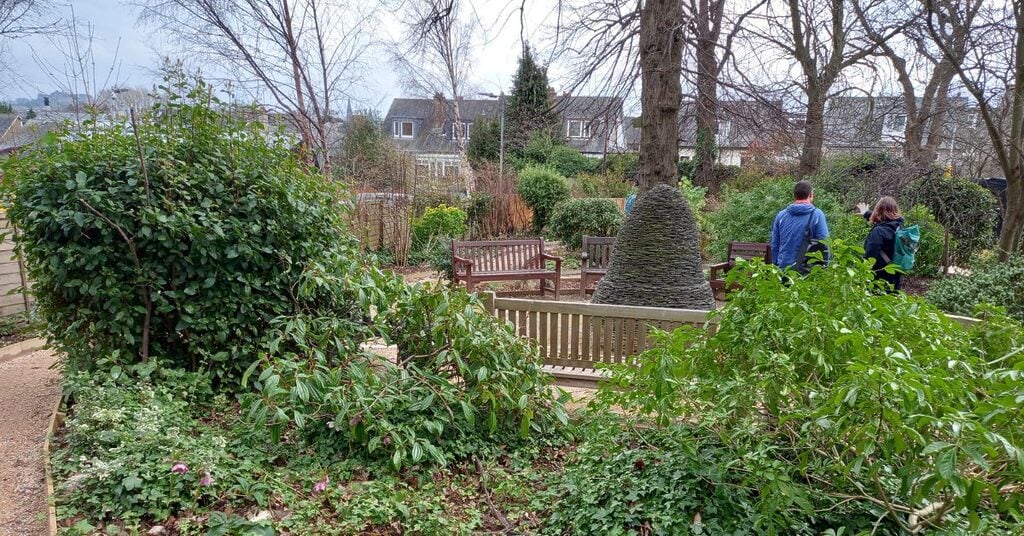
Guest Blog: New guidance to help people with poor mental health and substance dependence get out into nature
by Wendy Masterton
Against the backdrop of the highest rate of drug deaths in Europe, and concerns from experts that the slight decline seen in 2024 may not continue due to rising synthetic opioid harms, conversations around how best to support people who use drugs, who often find it difficult to engage with traditional services, must be prioritised. Providing opportunities for types of support that are not seen as ‘clinical’, may encourage more people with diverse and complex needs to engage in the first instance, but could also be seen as a stepping stone into more established treatment.
A recently completed research project, funded by the Chief Scientist Office and led by academics at The University of Stirling, has explored this. The team have proposed that nature-based programmes, such as gardening, conservation work, forest bathing, hillwalking, and other ‘green’ activities, could and should be an option at all stages of a person’s recovery journey. Indeed, the link between nature and human health is well established. However, for people with poor mental health and challenges with drugs and/or alcohol, spending time in nature comes with many barriers, and there are often limited opportunities for them to take part in nature-based activities. This is despite growing evidence that this group could benefit substantially from nature-based, therapeutic approaches.
To try and reduce barriers to accessing nature for people with poor mental health and substance dependence, the team, led by Dr Wendy Masterton (Senior Lecturer in Criminology) have created ‘how-to’, practical guidance manuals for health and social care providers looking to refer to, design, deliver, and/or evaluate nature-based programmes for people with poor mental health and substance dependence. This builds on previous work by the team and the manuals have been created in collaboration with existing nature-based programme participants, staff/volunteers, health professionals, and strategic decision makers to ensure they are relevant and helpful for practice ‘on the ground’.
The manuals are based around important aspects seen in nature-based groups, such as feelings of purpose, improved social interactions, repairing relationships with health and social care staff, increased physical activity, physical and psychological space to reflect, and feelings of escaping the stresses of daily life. The manuals provide guidance around: how to include these aspects in service delivery, how to have initial referral/buy-in conversations, risk assessment, and post-programme support. The guidance also includes tips on both established and more creative ways to evaluate programmes/participation.
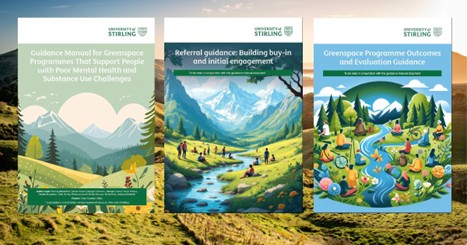
Abby Boultbee, Senior Greenspace Officer at Edinburgh & Lothians Greenspace Trust, said:
The manuals give clear guidance on working with people in recovery to improve mental wellbeing and will be valuable to reach for when planning our next programme. They are particularly useful in their advice from people with lived experience and offer strong support for evaluating through qualitative methods.”
Ian Mackenzie, Green Health Programme Manager at NHS Lothian Charity, concludes:
These manuals are a valuable addition to the resources we share with partners, stakeholders and network members across our Green Health programme. They demonstrate how accessible nature‑based activities can support recovery and wellbeing, and offer practical, safety‑focused guidance that will help us expand inclusive programmes across the NHS.”
To see the guidance manuals and to find out more about the project, please visit https://greenspace.stir.ac.uk/ or email Wendy Masterton on [email protected]
The research team would like to express thanks to everyone we interviewed, our advisory groups, those who reviewed the manuals from Venture Trust and Branching Out South Aberdeenshire, and also our co-investigators, the University of the Highlands and Islands, and University of Exeter.
The work has been funded by the Chief Scientist Office (CSO).

Latest News
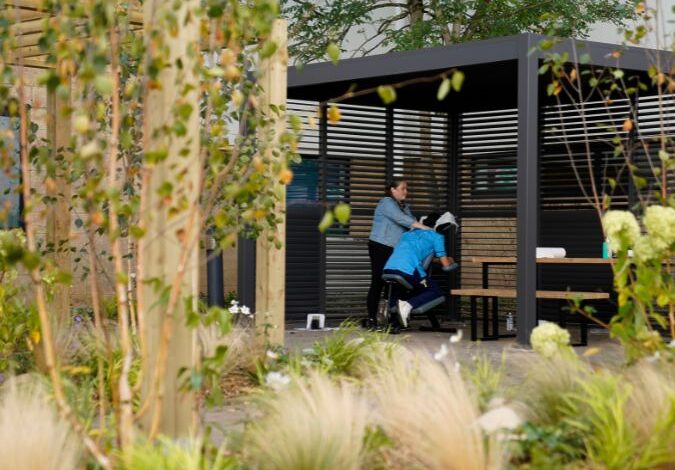
Introducing the New Staff Wellbeing Courtyard at the R…
We’re excited to share that the Staff Wellbeing Courtyard, located just off the OPD6 corridor at the Royal Infirmary of […]
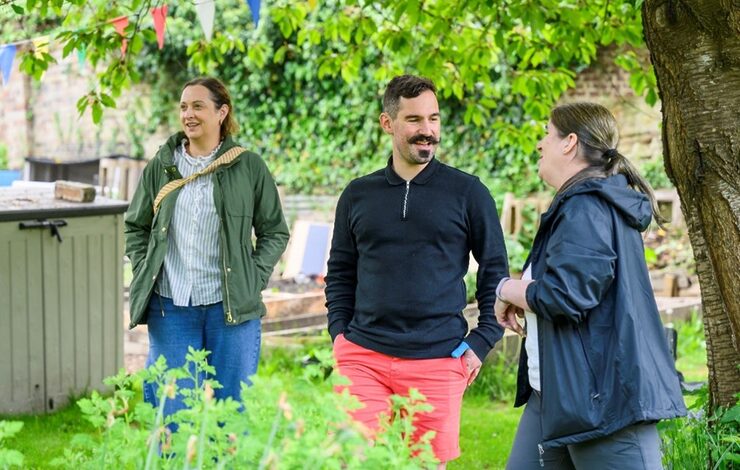
New Online Resource for Green Social Prescribing in Lo…
NHS Lothian Charity and Health in Mind are delighted to announce the launch of a new, centralised online resource dedicated to Green Social Prescribing in Lothian.
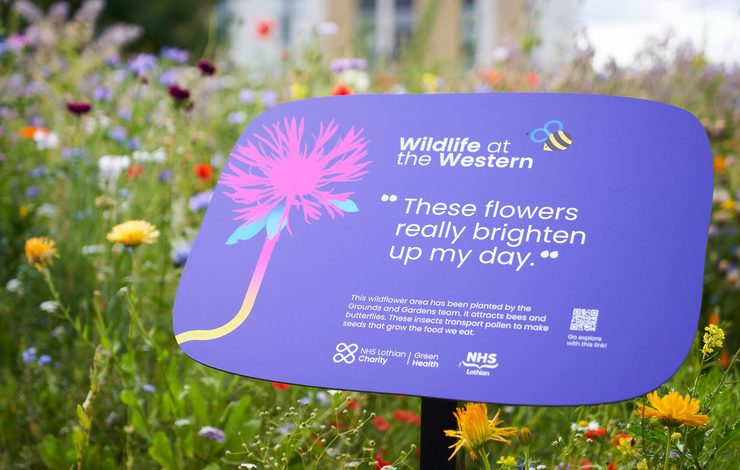
Committed to a greener NHS: NHS Lothian Charity Suppor…
In a significant development for protecting wildlife across the NHS estate, NHS Lothian Charity has supported NHS Lothian in completing its Biodiversity Action Plan (BAP) by a Health Board in Scotland.
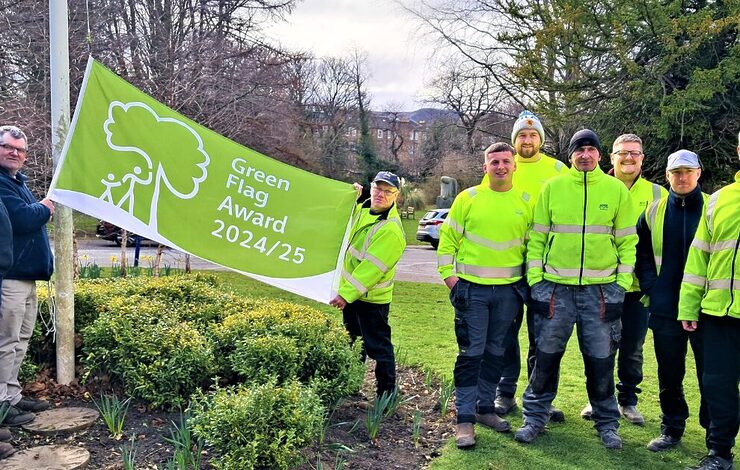
Four Years of Green Flag Success at Royal Edinburgh Ho…
In 2022, the Royal Edinburgh Hospital (REH) in Morningside made history by becoming the first NHS site in Scotland to […]